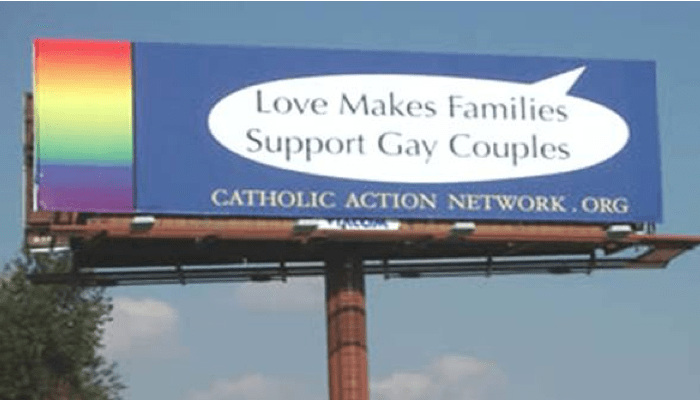By: Chuck Colbert/TRT Reporter/
A national organization that provides legal assistance to LGBT members of the armed forces and advocated repeal of ‘don’t ask, don’t tell” filed suit in federal district court in Boston, on Thursday, Oct. 27, challenging the Defense of Marriage Act (DOMA) and federal policy used by the military to deny gay service members spousal and family benefits equal to those granted to their straight married peers.
The Servicemembers Legal Defense Fund’s lawsuit, McLaughlin v. U.S, filed in the U. S. District Court for Massachusetts, comes five weeks after repeal of “don’t ask, don’t tell,” a law that banned openly gay, lesbian, and bisexual military service.
Last year the same court ruled that DOMA was unconstitutional because it interfered with a state’s right to define marriage and because it violated the rights of same-sex couples to equal protection under the law. That decision is on appeal.
Likewise, SLDN’s lawsuit challenges the constitutionality of DOMA, saying it violates the plaintiffs’ equal protection rights as well as 10th Amendment rights, which grant states the power to regulate marriage and define it for its residents.
SLDN’s lawsuit also challenges federal code that defines spouse as a person of the opposite sex. Consequently, gay couples are barred from accessing benefits provide by the Pentagon and the Department of Veterans Affairs. Those benefits include medical care, travel and housing allowances, access to military bases, spousal support groups, recreational programs, and burial rights at national cemeteries, among others.
“We are not advocating any special treatment for the families of gay and lesbian service members or veterans,” said SLDN’s executive director and Army veteran Aubrey Sarvis, in a statement. “But we want to underscore that all military families should be treated the same when it comes to recognition, benefits and family support.”
“This case is about one thing plain and simple. It’s about justice for gay and lesbian service members and their families in our armed forces rendering the same military service, making the same sacrifices, and taking the same risks to keep our nation secure at home and abroad,” Sarvis said. “These couples are in long term, committed, and legally recognized marriages and the military should not be forced to turn its back on them because the federal government refuses to recognize their families.”
The lawsuit includes eight plaintiff couples who were married in California, Iowa, Massachusetts, New Hampshire, and Vermont, and the District of Columbia — all jurisdictions where same sex marriage was legal at the time.
Altogether, the plaintiffs represent 159 years of military service. They serve in the Army, Air Force, Navy, and National Guard. As couples they have been together for a total of 79 years.
The plaintiffs include Major Shannon L. McLaughlin, 13-year, active-duty Army officer, currently serving in the Massachusetts National Guard as a Judge Advocate General. Major McLaughlin has been married to her same-sex spouse Casey McLaughlin for three years. Both Shannon and Casey McLaughlin are named as plaintiffs. They are parents of ten-month old twins, Grace and Grant.
As the lawsuit explains, Grace and Grant are eligible for the benefits associated with Major McLaughlin’s service, while “her wife Casey — a former high school teacher and now stay-at-home mom — is not.”
“We’ve been serving our country too long, working too hard, and sacrificing too much to see our families denied the same recognition, support and benefits as our straight, married counterparts,” said Major McLaughlin.
Two other plaintiff couples with ties to New England are Lieutenant Garry C. Ross, USN, and Dan Swezy. The couple was married in Vermont at 12:01 a. m., Sept. 21, 2011, immediately after “don’t ask, don’t tell” repeal took effect. The plaintiffs are not able to afford health insurance for Dan who travels to Mexico for many health care services. Ross has been denied spousal benefits for his husband.
Yet another plaintiff couple is Chief Warrant Officer Charlie Morgan and her wife Karen Morgan. The couple was married in New Hampshire. In 2008, Chief Warrant Officer, who resides in Rye, N. H., was diagnosed with breast cancer. Subsequently, she has undergone chemotherapy and radiation treatments and a double mastectomy. Recently, she received a recurring-cancer diagnosis. The couple is concerned about death benefits and burial rights that opposite-sex couples receive.
Perhaps the best-known plaintiff is active-duty Army Captain Steve Hill, currently serving in Iraq. During a recent televised debate among Republican presidential candidates, Captain Hill asked the GOP contenders via You Tube about “don’t ask, don’t tell” repeal, with his question initially drawing boos from a few members of the live audience. In May, Captain Hill and his husband Joshua Snyder were married in the District of Columbia. Like Lieutenant Ross, Hill has been denied spousal benefits for Joshua.
In other related news, the of Department of Defense announced that it has identified a total 14 benefits for which service members may designate beneficiaries of their choosing “regardless of sexual orientation.” The announcement came in a DOD press statement one day after SLDN filed its DOMA lawsuit.
The 14 benefits identified in the press release include: service members group life insurance beneficiary, post-Vietnam-ear veterans assistance program beneficiary, all-volunteer force educational assistance program – active duty death benefit beneficiary, death gratuity beneficiary, final statement of accounts, wounded warrior designated caregiver, thrift savings plan beneficiary, casualty notification, escorts for dependents of deceased or missing, designation of persons having interest in status of a missing member, veterans’ group life insurance beneficiary, person eligible to receive effects of deceased person, and travel and transportation allowance: attendance at “yellow ribbon” reintegration events.
“Unfortunately, [the Oct. 28] announcement does nothing to move the ball forward on the issue of providing equal benefits, recognition, and family support for legally married gay and lesbian families,” said SLDN’s Sarvis.
He added, “The benefits outlined . . . were, in fact, available even before the repeal of ‘don’t ask, don’t tell.’ Again, SLDN calls upon Secretary Panetta to confer now all the benefits and recognition he is authorized to extend to gay and lesbian service members and their families under current law.”
In August, SLDN sent a letter to Defense Secretary Leon Panetta, outlining benefit and family support programs that can be extended under current law without coming into conflict with DOMA.







